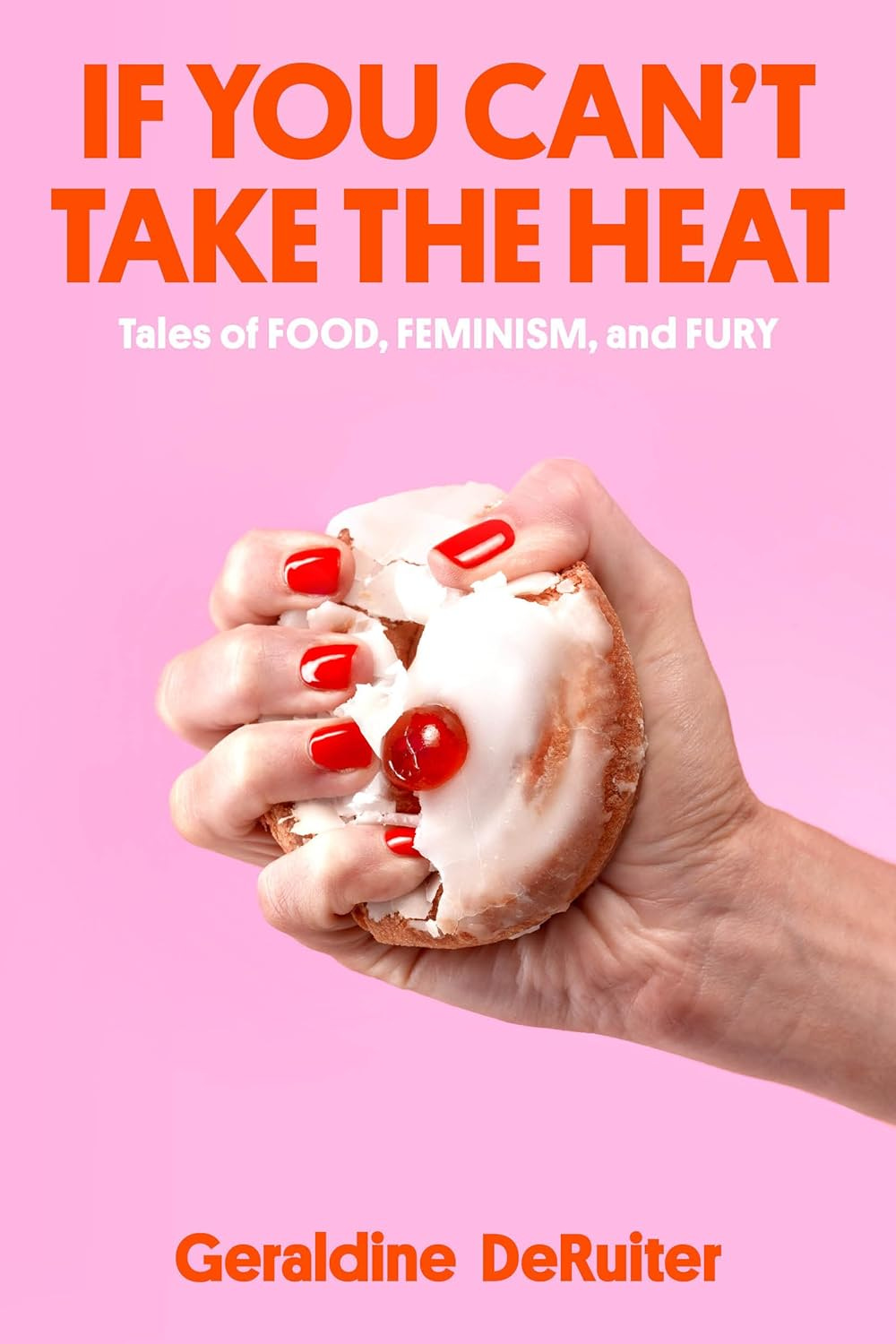If You Can't Take the Heat:
Tales of Food, Feminism and Fury
By Geraldine DeRuiter
Essays
Crown
March 2024
Our relationship with food is complicated, highly personal and often deeply connected to our childhoods and our families. It can affect how we see ourselves and others. The feelings food inspires are found all over the emotional spectrum. Our ties to food can be related to big ideas, societal workings and a deeply held belief in the way things should be.
Sometimes preparing food involves playing with ingredients and flavors that work together, creating a meal from scratch. Other times, there is baking, in which directions are required. Food essayist Geraldine DeRuiter knows how much both tactics can work in writing, how to combine the love of food with the love of family and what's right and wrong with the world in ways large and small.
The essays collected in If You Can't Take the Heat, which publishes on Tuesday, feature love of all these elements with the fierce passion that comes from caring. They are funny, wise and sweet.
Readers may know DeRuiter's first viral blog post about Mario Batali's weird cinnamon roll recipe attached to his non-apology apology when he was first accused of sexual misconduct. She tried making the recipe, based on pizza dough, even though she was a good baker and knew that kind of dough does not produce flaky pastries. As she wrote: "Good baking means you have to trust yourself." She made them, they indeed turned out awful and she threw most of them away. After eating more than one.
The poorly crafted recipe, itself an odd way to end a non-apology apology toward how women are treated, brings to DeRuiter's mind the ways she was sexually mistreated by men at various jobs. The casual sexually based attacks will resonate with any woman who has been in the workplace.
And after she is right about the recipe not being successful, she knows that she, as a woman, will be blamed and not the male creator of the recipe.
The internet attacks against her after the post went viral prove her right. Many were sexually based, violently so. And she found out the hard way to not engage the trolls.
The same thing happened after she, her husband and a group went to a world-class restaurant during a trip to Italy. They were served course after course of things that resembled snippets of food, all tasting of fish. An online essay about their experience went viral and the attacks came from all directions, including the New York Times (which may explain the current vitriolic piece recently published).
As insightful as DeRuiter's musings are about these events, they are not the whole substance of If You Can't Take the Heat.
There is a terrific tribute to the love a daughter feels for her mother, even one who managed to burn her house down. There is the time the author tried to recreate a complicated dessert for an elderly relative. There is a heartfelt explanation of why a chain restaurant may have a special place in a grown-up's heart, even a grown-up who appreciates fine food (hint: it has to do with family gathered and peace reigning for an entire meal). And throughout, there is her husband, a kind, handsome man who is an excellent cook.
There is a thoughtful essay about the connection between being hungry and anger, and who is allowed to feel which. This piece includes a fascinating idea about Medea that makes perfect sense. There are referrals to Springsteen, which shows DeRuiter to be a writer of great discernment, and good fiction, including Emily St. John Mandel's Station Eleven and Rumaan Alam's Leave the World Behind, with the incredible scene of a group thrown together that bake a cake and add sprinkles to the frosting. As DeRuiter notes about the last, the idea of adding sprinkles in a situation in which the world may be collapsing upon people who didn't know each other until they ended up in the same kitchen is a profound one. Some things anchor the world. Sprinkles may well be one of them.
In myriad ways, If You Can't Take the Heat proves that one of the most sincere ways to show someone that you love them is to feed them with food you have created. It's a stabilizing and sweet idea that shines throughout this lovely book.





sounds like a sweet treat :)